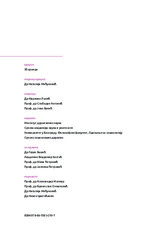Prikaz osnovnih podataka o dokumentu
Техника и моћ - Тадићева рецепција критичке мисли о техници
Technics and power - Tadić’s reception of critical thought on technics
| dc.creator | Damnjanović, Ivana | |
| dc.date.accessioned | 2024-02-14T12:44:23Z | |
| dc.date.available | 2024-02-14T12:44:23Z | |
| dc.date.issued | 2019 | |
| dc.identifier.issn | 978-86-7093-219-7 | |
| dc.identifier.uri | http://rfpn.fpn.bg.ac.rs/handle/123456789/1149 | |
| dc.description.abstract | Љубомир Тадић има значајно место међу ретким српским мислиоцима који су своју пажњу посветили питању односа технике са друштвеном и, у оквиру ње, политичком сфером. Чврсто смештена у шири контекст његове мисли о друштву и политици, Тадићева разматрања технике везана су пре свега за једну кључну тему: однос технике и моћи. Управо повезивање технике и политичке моћи је, по Тадићевом мишљењу, један од суштинских проблема савременог друштва. Уместо да остварује своју еманципаторску функцију и допринесе успостављању темељних људских и друштвених вредности, савремена техника се претвара у инструмент доминације. На тај начин политика се из руку народа измешта у делокруг политичких стручњака. Ову тежњу ка успостављању технократске власти Тадић види као дубоко реакционарну, а технократизам као идеологију смешта недвосмислено у корпус конзервативизма. Тадићеве анализе технике, тачније техничке цивилизације, као специфичног проблема савременог друштва, ослањају се у великој мери на радове немачких филозофа: Хајдегера, Хоркхајмера и Адорна, као и Маркузеа. Његове интерпретације ових аутора, делимично систематизоване у "Парергону", несумњиво представљају врло значајан допринос нашој друштвенонаучној и филозофској мисли о техници. Циљ овог рада је да покуша да кроз анализу дела Љубомира Тадића аргументовано покаже да се друштвенонаучно разматрање технике развијало пре свега у оквиру југословенске филозофије праксе, и да се из њене перспективе може сагледати сложени однос између овог филозофског правца и критичке теорије друштва, пре свега Франкфуртске школе. Својим делом Тадић, наиме, не остаје при пуком усвајању ставова немачких аутора, већ се са њима упушта у дијалог, користећи их као подлогу за изградњу сопствених концепата и закључака о односу технике и моћи. | sr |
| dc.description.abstract | Ljubomir Tadić is among rare Serbian authors who wrote on the topic of the technics and its relationship with social and political sphere. Firmly embedded into the wider context of his thought on society and politics, Tadić’s considerations of the technics are primarily focused on one important issue - the relation between the technics and power. This very connection between the technics and the political power, in Tadić’s view, is one of the essential problems of the modern society. Instead of fulfilling its emancipatory function and contributing to establishment of fundamentally human values as foundation of society, modern technics turns into an instrument of domination. In this manner, politics is removed from the hands of the people and turned into the field accessible to experts only. This tendency toward technocratic forms of government Tadić sees as deeply reactionary, and thus he emphatically pla- ces technocratism as an ideology deep within the conservative part of the spectrum. Tadić’s analysis of the technics, more precisely of the technical civilization as a specific problem of modern society, relies heavily on the works of German philosophers – Heidegger, Horkheimer and Adorno, Marcuse. His interpretations of these authors, partially systematized in Parergon, are undoubtedly a significant contribution to Serbian social and philosophical thought on technics. This paper shows that thought about technics in Serbia had developed primarily wit- hin Yugoslav philosophy of practice, and that it can be used as an illustration of the complex relationship between this school of thought and the critical theory of society, primarily of the Frankfurt school. Namely, in his works Tadić does not only passively adopt the ideas of other authors, but uses them as a starting point for dialogue and a foundations for his own concepts and conclusions about the relationship between the technics and the power. | sr |
| dc.language.iso | sr | sr |
| dc.publisher | Београд : САНУ, Институт друштвених наука | sr |
| dc.publisher | Београд : Универзитет у Београду - Филозофски факултет | sr |
| dc.publisher | Београд : Српско социолошко друштво | sr |
| dc.rights | openAccess | sr |
| dc.rights.uri | https://creativecommons.org/licenses/by-nc-nd/4.0/ | |
| dc.source | Филозофија кризе и отпора | sr |
| dc.subject | Ljubomir Tadić | sr |
| dc.subject | technics | sr |
| dc.subject | political power | sr |
| dc.subject | technocracy | sr |
| dc.subject | critical theory | sr |
| dc.subject | Ljubomir Tadić | sr |
| dc.subject | tehnika | sr |
| dc.subject | politička moć | sr |
| dc.subject | tehnokratija | sr |
| dc.subject | kritička teorija | sr |
| dc.title | Техника и моћ - Тадићева рецепција критичке мисли о техници | sr |
| dc.title | Technics and power - Tadić’s reception of critical thought on technics | sr |
| dc.type | conferenceObject | sr |
| dc.rights.license | BY-NC-ND | sr |
| dc.citation.epage | 361 | |
| dc.citation.spage | 346 | |
| dc.identifier.fulltext | http://rfpn.fpn.bg.ac.rs/bitstream/id/3311/fulltext.pdf | |
| dc.identifier.rcub | https://hdl.handle.net/21.15107/rcub_rfpn_1149 | |
| dc.type.version | publishedVersion | sr |

